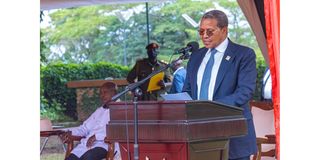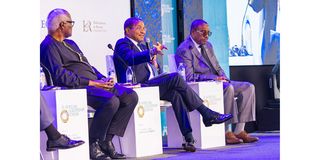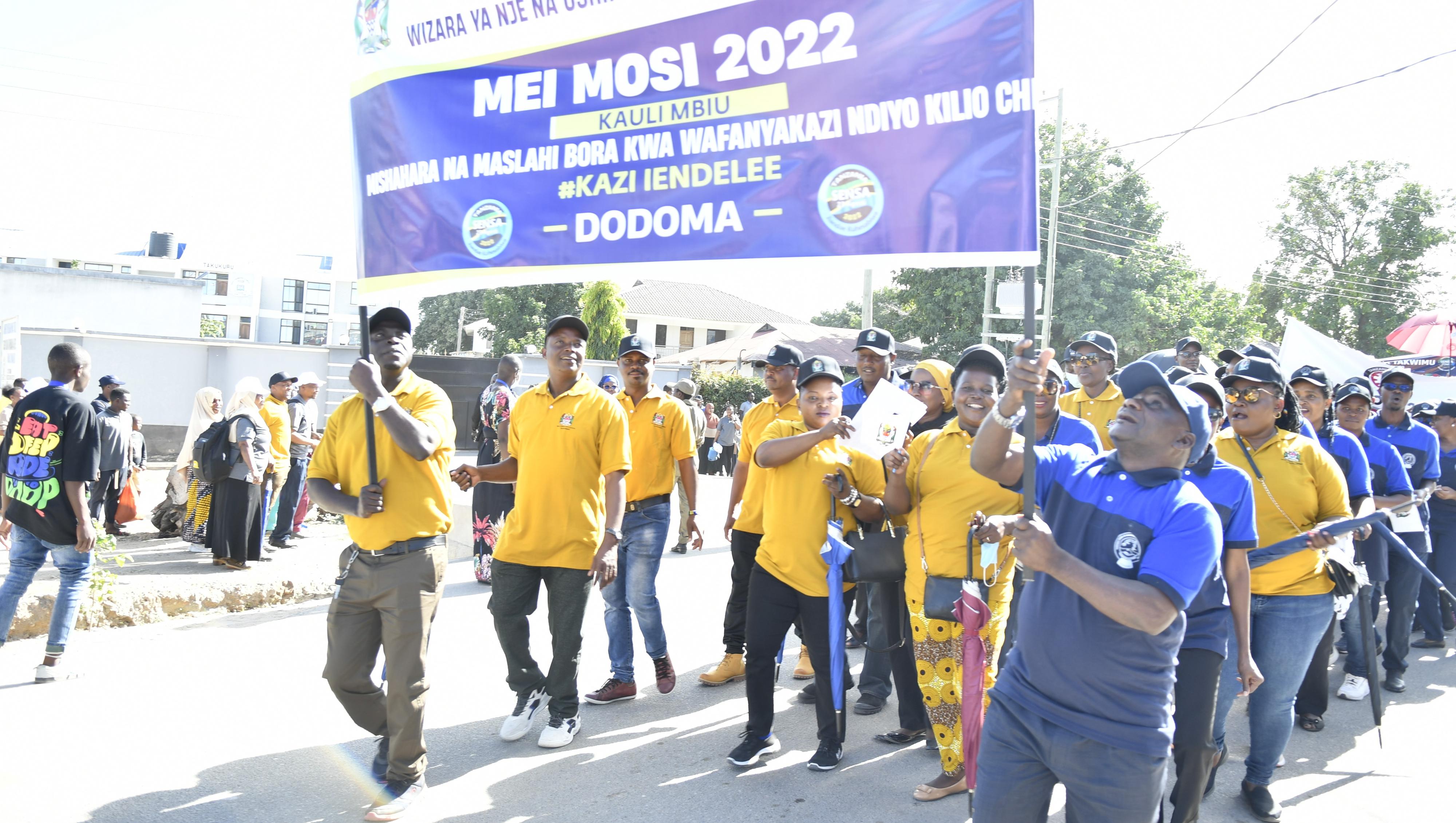Delegates at the African Leadership Forum call for fresh focus on SDG implementation

Former President of Tanzania, forum patron and ALF 2025 convener, Jakaya Mrisho Kikwete, addresses the forum in Kampala, Uganda
Kampala. Leaders gathered at the 8th African Leadership Forum (ALF) in Kampala have called for a renewed focus on the Sustainable Development Goals (SDGs), urging African nations to prioritize “Africa-first” strategies in achieving these global objectives.
The ongoing forum, organized by the Institute of African Leadership for Sustainable Development (UONGOZI Institute), is being held under the theme “Realising Sustainable Development Goals in Africa: Progress and Way Forward.”
It seeks to assess the current state of SDG implementation across the continent, addressing challenges and identifying bottlenecks hindering progress.

Former President of Tanzania, forum patron and ALF 2025 convener, Jakaya Mrisho Kikwete sepaks during the forum held in Kampala on Monday, April 7.
Speaking at the opening of the forum on Monday, Uganda’s President Yoweri Museveni emphasized the need to remove strategic bottlenecks that prevent socio-economic transformation.
He highlighted that nations must first build strong, capable states with sound policies focused on national interests. Drawing from Uganda’s own experience, Museveni outlined the five stages of economic development: from minimum recovery and expanding the colonial economy to diversifying, adding value, and ultimately transitioning toward a knowledge-based economy.
Former President of Tanzania, forum patron and ALF 2025 convener, Jakaya Mrisho Kikwete, stressed the urgent need for high political will to turn ambition into action.
He urged African leaders to confront challenges in SDG implementation as opportunities, reaffirming the continent’s commitment to both the SDGs and Africa’s Agenda 2030. He also emphasized the importance of prioritizing economic growth, job creation, and an education system that delivers world-class learning outcomes and fosters a robust middle class.
Former Prime Minister of Ethiopia and ALF co-convener, H.E. Hailemariam Desalegn, underscored Africa’s potential to overcome the challenges to SDG achievement. He pointed to a significant funding gap as a major hurdle, proposing alternative financing solutions, including strengthening governance, transparency, the rule of law, and combating corruption.
Desalegn also highlighted the need for enhanced regional integration through the African Continental Free Trade Area (AfCFTA) to foster intra-African trade.
In his remarks, Antonio Pedro, Deputy Executive Secretary of the United Nations Economic Commission for Africa (UNECA), warned that unemployment is not only an economic concern but also a threat to peace. He argued that the private sector must invest in purpose alongside profit, urging a recalibration of the SDG model to enhance intra-African trade.
Removing tariff and non-tariff barriers could increase intra-Africa trade by 45 percent over the next decade, he suggested, noting that Africa currently holds just 1 percent of the projected $1.8 trillion global AI economy by 2030.
Mafa Chipeta, former FAO representative to Ethiopia, the African Union, and UNECA, called for a more selective and focused approach to SDG implementation, warning against overextension. He pointed out that Africa, with 18% of the world’s population, represents only 2% of global GDP and trade, and less than 0.5 percent in critical technologies. Chipeta also stressed the importance of reducing Africa’s reliance on donor funding and increasing local resource mobilization.
Former Sierra Leone President Dr. Ernest Bai Koroma echoed this sentiment, urging Africa to seize the current global uncertainty and take bold steps toward re-anchoring itself in new development directions. He highlighted human capital development in education, health, agriculture, and governance as essential pillars for the continent’s future.
Former Tunisian President Dr. Mohamed Moncef Marzouki emphasized that Africa must rely on its own resources and strengthen intra-Africa trade, with democratic, independent, and corruption-free governance as the foundation.
Former Ugandan Vice President Gilbert Bukenya echoed this view, advocating for innovative leadership that prioritizes Africa’s own development agenda over external interests.
Retired Foreign Minister Sam Kutesa added that while the SDGs offer aspirational goals, it is crucial for Africa to innovate new financial measures, leveraging local natural resources and the private sector to fund their implementation.
The forum has included thematic discussions on poverty eradication, economic growth, health, education, environmental sustainability, and climate action. These sessions are seen as a vital precursor to the 11th Session of the Africa Regional Forum on Sustainable Development, organized by UNECA, which will take place from April 9–11, 2025.
The UONGOZI Institute, which organized the forum, serves as a leadership development hub operating under Tanzania’s President’s Office.
Established in 2010 through a partnership between the governments of Tanzania and Finland, the institute aims to inspire and equip African leaders with the skills and knowledge to implement inclusive and sustainable solutions for the continent's development.




